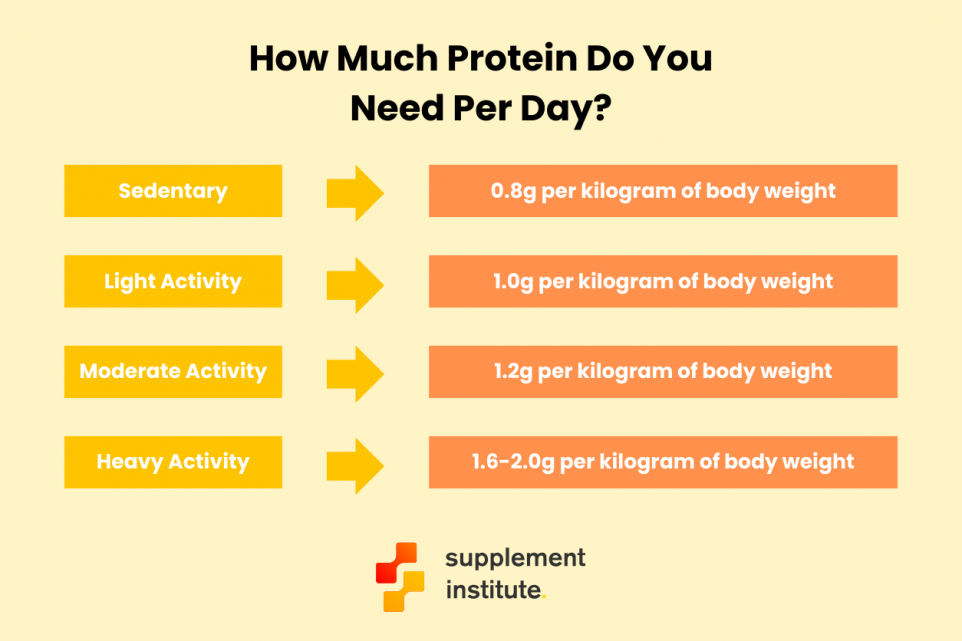How To Fit More Protein in Your Diet, According to Gym Bros

Alright, let’s talk about protein. If you’re hitting the gym, trying to lose weight, or just aiming to boost your overall health, increasing your protein intake is likely on your radar. It’s not just about piling on heaps of chicken breast or chugging down shakes; it’s about smart, sustainable ways to enhance your diet. Let’s break down how much protein you really need, explore some excellent protein sources, and dive into practical tips to increase your intake without overhauling your entire lifestyle.
How Much Protein Do You Really Need?
Before we start adding protein to our diet willy-nilly, it’s crucial to know how much protein you actually need. The amount of protein required varies based on your body weight, level of activity, age, and your overall health goals. General guidelines suggest that for most people, consuming 0.8 grams of protein per kilogram of body weight is sufficient to prevent deficiency. However, if you’re active, looking to build muscle, or maintain muscle while losing fat, your needs are definitely going to be higher.

For those engaged in moderate to intense physical activities, protein needs can range from 1.2 to 2.0 grams per kilogram of body weight. However, very high protein diets (over 2 grams per kilogram of body weight) are rarely necessary and can strain your kidneys, especially if you have preexisting kidney issues.
Rich Protein Sources
Not all protein sources are created equal. Depending on your dietary preferences, lifestyle, and health goals, some sources might suit you better than others:
Animal-Based Proteins
These include meats like chicken, turkey, and lean cuts of beef, which are high in protein and essential amino acids but can also be high in fat. Eggs are an excellent source too, though if cholesterol or fat is a concern, sticking to egg whites might be beneficial. Seafood, particularly fish like tuna and tilapia, offers high-protein content with lower levels of fat compared to fattier fish like salmon.
Plant-Based Proteins
Options like lentils, chickpeas, and black beans are fantastic not just for their protein but also for their fiber content. Quinoa and soy products like tofu and tempeh also provide good amounts of protein that are suitable for those on a vegetarian or vegan diet.
How To Increase Your Protein Intake
Now, let’s dive into the real meat of the matter—how to actually fit more protein into your diet in a way that feels natural and sustainable:
Start with breakfast. Many people consume the least amount of protein at breakfast. Switching out a carb-heavy breakfast for one richer in protein can balance your intake throughout the day. Think Greek yogurt, a smoothie with a scoop of protein powder, or an omelet loaded with your favorite veggies and lean meats or tofu.
Make smart swaps and additions. Look at your current diet and find places where you can either swap out lower-protein items for higher-protein alternatives or simply add protein to a meal. For instance, replacing some of your rice or pasta with beans or lentils can boost protein while maintaining fullness.
Add protein-heavy snacks to your diet. Instead of reaching for a bag of chips or cookies, opt for snacks that can help you reach your protein goals. Greek yogurt, jerky, a handful of nuts, or a protein bar can be great choices that don’t just fill you up but also contribute significantly to your daily protein intake.
Lean on supplements wisely. While it’s best to get most of your nutrients from food, sometimes supplements can help fill the gaps, especially on busy days. Adding a scoop of whey protein to your shakes or even your morning coffee can boost your intake without much effort. Remember, the goal is to supplement your diet, not replace real food.
Tweak your dinners. Dinner is often the heaviest meal of the day. Ensuring you have a lean protein source at dinner can not only help with muscle repair and growth overnight but also keep you feeling satisfied longer, helping you avoid late-night snacking.
Hydrate differently. Consider protein-enriched waters or adding a scoop of collagen peptides to your water bottle. It’s a refreshing way to increase your protein intake without feeling like you’re eating more.
Put some thought into your post-workout meal. Fueling your body after a workout is crucial for muscle recovery. A protein shake or a meal containing high-quality protein can enhance muscle synthesis and aid recovery.
Building a Stronger You
Supplement Institute is the fruit of extensive online publishing experience, spanning the breadth of SEO strategies to the nuances of paid advertisements. Our journey, marked by significant achievements and learning moments, inspires our core mission: to empower our readers with an abundance of information. By sharing insights and key learnings, we aim to provide you with the knowledge needed to navigate the complex world of supplements, helping you make well-informed decisions for your health and well-being. Welcome to Supplement Institute, where information is your greatest supplement.